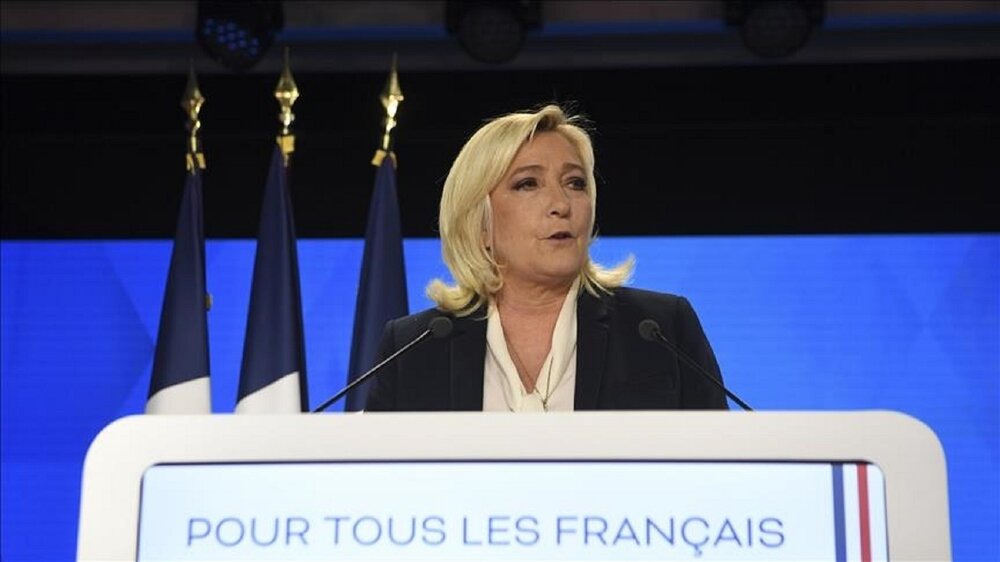Hawzah News Agency – Emmanuel Macron overcame Marine Le Pen in the final round of the presidential election on Sunday, but her defeat still marks a landslide “victory” for the French far-right.
Le Pen’s 41%-42% estimated vote share, according to exit polls, breaks her own record of 33.94% in the 2017 final against Macron, and is far above the 17.9% she secured for her third-place finish in the first round of the 2012 election.
“Tonight’s result is in itself a resounding victory,” she said Sunday, referring to her loss.
It represents a definite surge in the number of extreme-right voters in France, which has more than doubled from 18% in 2002 when Le Pen’s father Jean-Marie Le Pen caused a political tsunami to become the first far-right candidate to reach the finals of the 2002 election against outgoing President Jacques Chirac.
Le Pen’s vote share today demonstrates the humongous expansion of the far-right, which is inching closer to representing nearly half of the country’s opposition. Although Macron has landed a comfortable victory, he will have to wade through an even more polarized France over the next five years.
Racist, xenophobic politics
The 53-year-old former lawyer is a member of parliament from the Pas-de-Calais region in northeastern France. She took over the reins of the party from her father in 2012 and attempted to overhaul it by changing its name from the National Front to National Rally.
The party’s politics have, however, remained similar, spewing racist and xenophobic rhetoric on immigration and Islam and championing pro-French identity politics.
She has gone on trial for hate speech twice for her remarks comparing Muslims praying in the streets to the Nazi occupation of France and for posting graphic images of the Daesh/ISIS terrorist group’s atrocities.
This year, Le Pen focused her campaign on economic issues and inflation due to the Ukraine war and on improving the daily lives of the French, which was soon overshadowed by her controversial positions against Muslims and on Russia.
She vowed to ban the headscarf worn by Muslim women from all public spaces and announced to campaign for rapprochement between Moscow and NATO, withdraw Paris’ membership from NATO, and make a softer exit from the European Union by forming an alliance of like-minded countries.
Her statements raised alarm at home and in Europe, prompting the leaders of Spain, Germany and Portugal to launch an appeal to block her victory.
Bolstering far-right politics
Le Pen’s popularity has spawned clones like former journalist-turned-politician Eric Zemmour, who propagates pro-French and anti-immigrant rhetoric.
Zemmour, who contested the presidential election for the first time, focused his campaign around the themes of anti-immigration and the Great Replacement theory of white nationalism. He came fourth in the first round with 7% of the vote, demolishing the score of traditional left-wing and socialist party candidates.
While Zemmour and Le Pen are rivals, their combined voting share indicates the possibility of an alliance in the future that would further embolden extreme-right politics. After the announcement of the results, he called on Le Pen to join hands for the legislative elections in June to prevent Macron’s party from dominating parliament.
“We must forget our quarrels and unite our forces. It is our duty,” he said.
Whether they form an alliance or fight separately, their far-right ideas are getting popular.
The ground for the extreme-right movement laid by the senior Le Pen in the 1970s will continue to embolden and redefine politics in France – one election at a time.



Your Comment